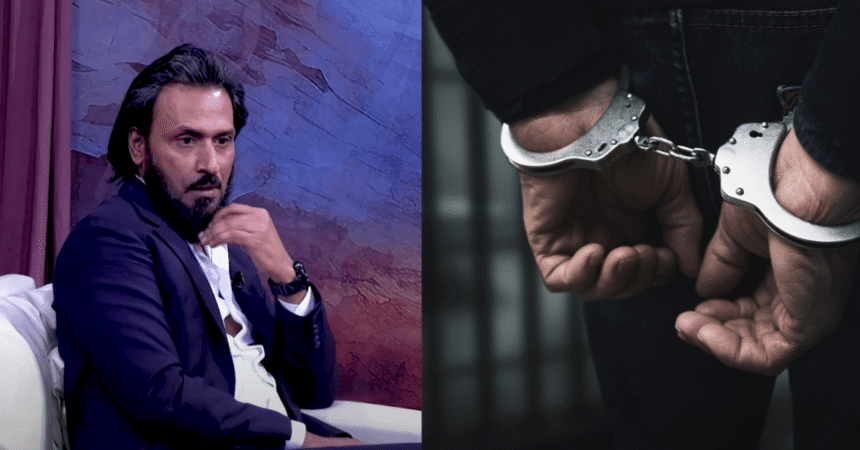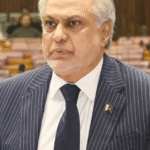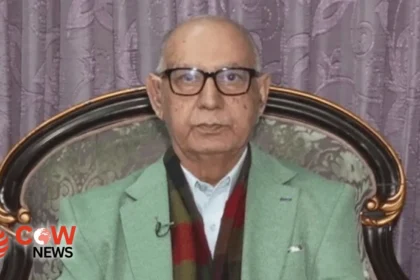In a significant legal development in Karachi, a non-bailable arrest warrant has been issued for social media influencer Sahil Adeem in connection with a defamation case. The warrant was issued by Judicial Magistrate (South) Sher Muhammad on Friday after the investigating officer, Waqar Ahmed, submitted a final charge sheet against Adeem. This case not only underscores the complexities of social media influence but also highlights the legal repercussions that can arise from controversial online statements.
Understanding the Charges
Sahil Adeem is facing serious charges under various sections of the Pakistan Penal Code, which are designed to address offenses related to communal harmony and defamation. The specific charges include:
- Section 153: This section deals with promoting enmity between different groups. It is a critical provision aimed at preventing the incitement of hatred or violence based on ethnic, racial, or religious differences.
- Section 505(1)(c): This section addresses statements intended to incite any class or community against another, posing a threat to public tranquility.
- Section 500: This section pertains to punishment for defamation, which is defined as making false statements that damage someone’s reputation.
Additionally, the charges are reinforced by Section 512 of the Criminal Procedure Code, which allows for the record of evidence in the absence of the accused. The magistrate has mandated that the investigating officer arrest Adeem and present him in court by September 24.
Background of the Allegations
The defamation case against Adeem stems from a complaint lodged on July 12 by Advocate Abdul Fatah at the City Court police station. The complaint alleges that Adeem, in one of his videos, made derogatory remarks against the Sindhi community, a significant ethnic group in Pakistan. Such remarks are particularly sensitive in a country with a history of ethnic tensions, making the implications of the statements all the more severe.
According to state prosecutor Abdul Rehman Thaheem, Adeem’s content is viewed as inflammatory and potentially incendiary, as it allegedly attempts to incite conflict between Sindhis and Punjabis. The rising tensions between different ethnic groups in Pakistan are a matter of concern, and the legal system is often called upon to address grievances that can escalate into broader societal issues.
Protective Bail and Legal Proceedings
Before the arrest warrant was issued, Sahil Adeem had managed to secure protective bail from the Islamabad High Court (IHC) on July 15. The bail was granted for a period of 15 days, requiring a surety bond of Rs 20,000. However, the IHC directed him to approach a competent court in Karachi to face the charges leveled against him.
Despite this directive, the investigating officer reported that Adeem did not join the investigation or surrender to the court as required. This failure to comply with court orders likely influenced the magistrate’s decision to issue a non-bailable warrant for his arrest. The importance of adhering to legal processes cannot be overstated, especially for individuals in the public eye, where actions are scrutinized closely.
Political Reactions and Social Media Impact
The case against Adeem has drawn considerable media attention and sparked discussions across various platforms. Notably, PPP lawmaker Marvi Faseeh has taken a stand against Adeem, moving a resolution in the Sindh Assembly condemning his alleged derogatory remarks about women made during a television show called Mukalma. This political action emphasizes the increasing scrutiny social media influencers face regarding their public statements.
The involvement of political figures in such cases highlights the intersection of media, politics, and societal norms in Pakistan. It also underscores the responsibility that comes with influence, as public figures are often held accountable for their statements and the potential impact those statements can have on community relations.
The Role of Social Media in Contemporary Discourse
Social media has revolutionized the way individuals communicate and share information. Influencers wield considerable power, shaping opinions and affecting public sentiment. However, with this power comes a responsibility to engage thoughtfully and respectfully, particularly regarding sensitive topics.
Sahil Adeem’s case exemplifies the consequences that can arise when this responsibility is neglected. The potential for social media content to incite conflict or promote enmity is a significant concern, and this case serves as a critical reminder of the importance of accountability in digital spaces.
As the legal landscape evolves to accommodate the complexities of social media, influencers must navigate their platforms with care, understanding the weight of their words and the societal implications of their reach.
Legal Implications for Influencers
The legal framework governing defamation and incitement in Pakistan is robust, reflecting the need to maintain public order and protect community relations. The ramifications of such laws are particularly pronounced for social media influencers, who may not always be fully aware of the legal boundaries surrounding their content.
- Defamation Laws: Under Section 500 of the Pakistan Penal Code, defamation is a serious offense that can lead to both civil and criminal liability. For influencers, this means that statements made in videos, posts, or live sessions can have legal consequences if they are deemed harmful to another’s reputation.
- Promoting Enmity: Sections 153 and 505 of the Penal Code are specifically designed to prevent the incitement of hatred and violence. In a culturally diverse nation like Pakistan, remarks that target specific ethnic or religious groups can lead to heightened tensions and conflict, necessitating legal intervention.
- Enforcement Challenges: One of the complexities in enforcing these laws is the rapid and often ephemeral nature of social media content. Videos and posts can go viral before any legal action can be taken, complicating the enforcement of defamation laws and the prosecution of individuals like Adeem.
Balancing Freedom of Expression and Accountability
The case of Sahil Adeem raises important questions about the balance between freedom of expression and accountability. In a democratic society, the right to express opinions, even controversial ones, is fundamental. However, this right is not absolute, and there are limitations, especially when speech has the potential to harm others or incite violence.
The challenges in defining the limits of free speech in the digital age are significant. As influencers navigate this complex landscape, they must consider the potential impact of their words and the responsibility that comes with their platform.
In Pakistan, where societal dynamics are complex and often fraught with tension, the need for influencers to engage with sensitivity and awareness is more critical than ever. The legal system will continue to play a role in delineating these boundaries, but the onus also lies on content creators to act responsibly.
The Broader Societal Context
Sahil Adeem’s case is not just about one individual; it reflects broader societal issues concerning identity, representation, and the power of media. The way communities are portrayed in media can influence public perception and contribute to existing stereotypes.
The Sindhi community, like many others in Pakistan, has its unique cultural identity and history. The perception of this identity can be shaped by media representations, making the content created by influencers particularly impactful. Derogatory remarks can perpetuate negative stereotypes and exacerbate existing divisions, leading to societal tensions that can spill over into violence.
The Need for Media Literacy
As social media continues to shape public discourse, there is a pressing need for media literacy among both creators and consumers. Understanding the implications of content, recognizing the potential for harm, and engaging critically with media are essential skills in today’s digital landscape.
- For Influencers: Influencers should be educated about the impact of their words and the legal ramifications of their statements. Training in media ethics, cultural sensitivity, and the legal landscape surrounding their work can empower them to create responsible content.
- For Audiences: Media literacy programs can help audiences critically evaluate the content they consume, encouraging them to consider the motivations behind statements and the potential consequences of sharing harmful or inflammatory material.
Conclusion
The issuance of a non-bailable warrant for Sahil Adeem is a significant development that highlights the intersection of social media, law, and societal responsibility. As the legal system addresses allegations of defamation and incitement, it serves as a reminder of the power that influencers hold and the consequences of their actions.
As the case progresses, it will be crucial to observe how the legal proceedings unfold and what implications they may have for other influencers in Pakistan. The broader societal conversation about the role of media, the responsibilities of public figures, and the need for accountability in digital spaces will undoubtedly continue to evolve.
Ultimately, the challenges posed by social media require a collective response from influencers, audiences, and legal systems alike. By fostering a culture of responsible engagement and awareness, society can better navigate the complexities of modern discourse while promoting harmony and understanding among its diverse communities.
#SahilAdeem #DefamationCase #SocialMediaInfluencer #Karachi #PakistanLaw #JudicialSystem #FreedomOfExpression #EthnicTensions #OnlineAccountability #MediaLiteracy







